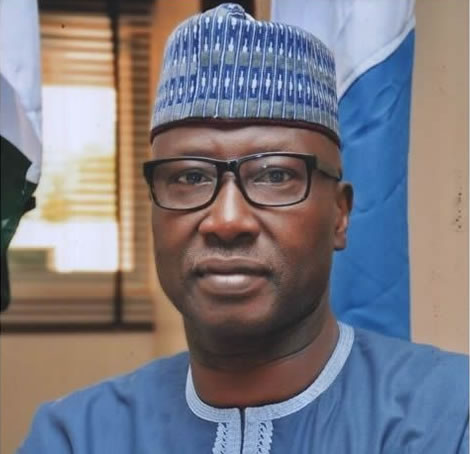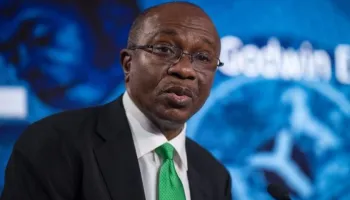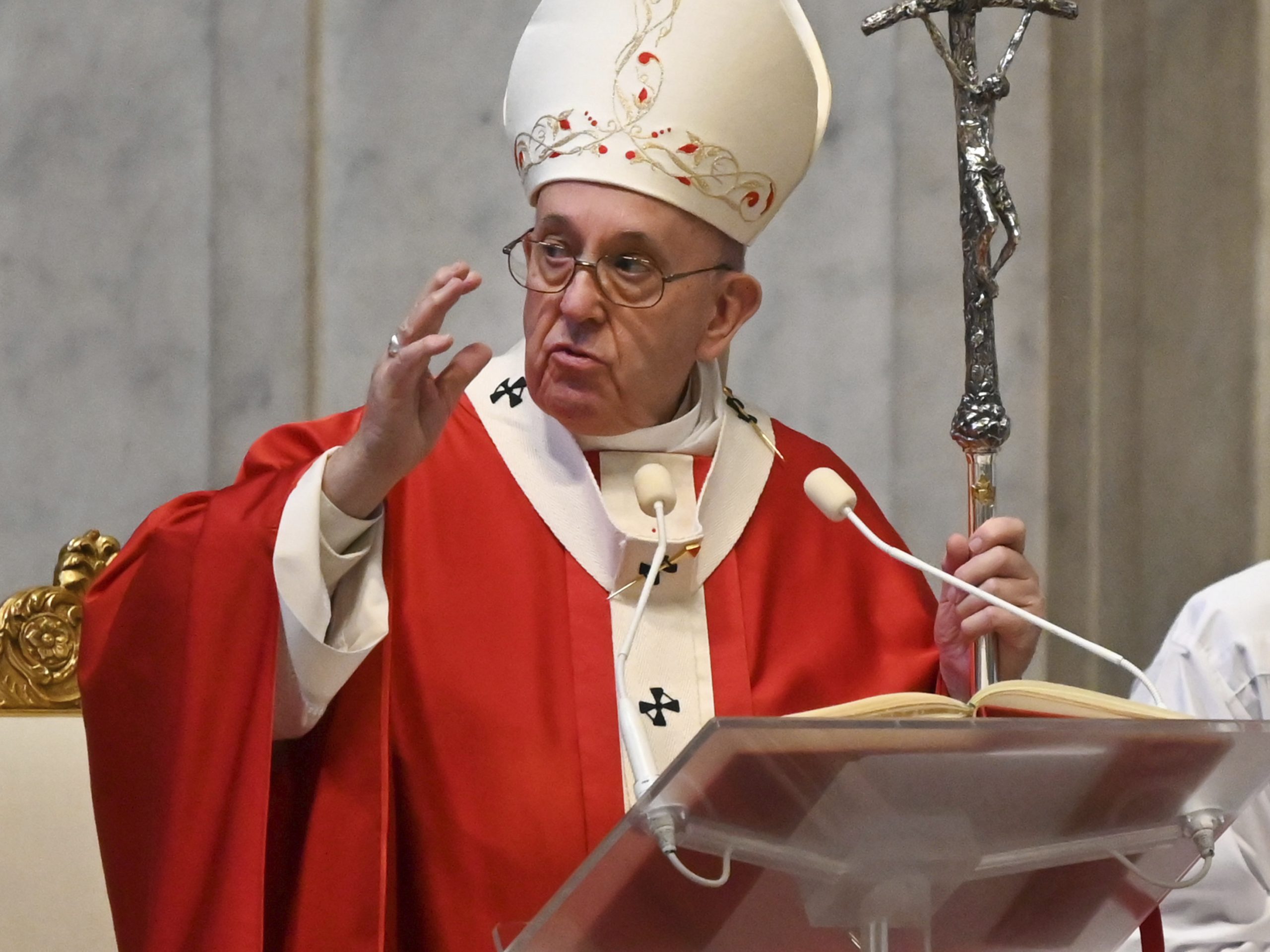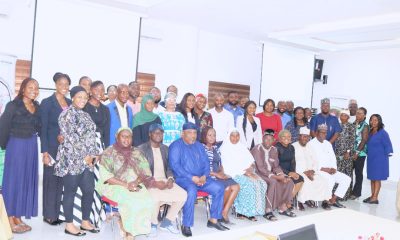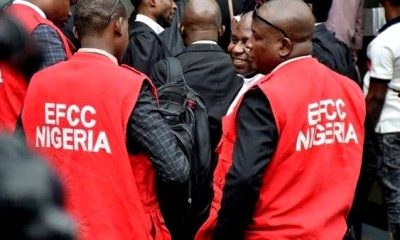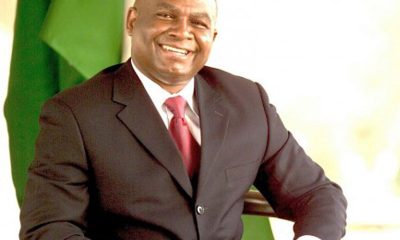COVER
Electoral Act Amendment Bill: Reps Prepare to Override Buhari’s Veto

*Test-run Electronic Voting, Today
We Will Review BVAS Operations— INEC
By Jude Opara, Abuja and Ubong Ukpong, Abuja
Jude Opara, Abuja and Ubong Ukpong, Abuja
The House of Representatives, appears to be making preparations to override President Muhammadu Buhari’s veto on the Electoral Act Amendment Bill 2021, as it announced yesterday, the plans to commence voting electronically, with effect from Wednesday, February 16 plenary.
Speaker Femi Gbajabiamila, gave the hint on electronic voting from Wednesday, while conducting proceedings at Tuesday’s plenary.
The Speaker said, “We will be test running our electronic voting tomorrow.
I just pray it works. Plenary tomorrow, will be using the electronic voting.”It had always been the desire of the Speaker to achieve voting electronically since his inception in office, as he introduced it to end analogue regimes in the House.
The House had put in so much efforts to ensure the electronic voting and acquired necessary equipment, but the efforts had remained fruitless.
This led to the leadership abandoning the digital system to stay with manual voice votes, which had proven not to always represent the true position of the House as it created rooms for manipulation of votes by the presiding officer in favour of his sentiments.
However, DAILY ASSET learned from sources in the House that this particular move to test run the electronic voting is in preparation to override President Muhammadu Buhari’s veto if he again, fails to sign the Electoral Act Amendment Bill 2021 into law.
Like it was often said, ‘once beaten twice shy’, the House had come under intense pressure and attacks from the public to save its reputation by overriding the President, should he fails to assent.
Consequently, the leadership also, seemed not ready to shield any lawmaker by using unverifiable mode of voting, but would want the public to hold each lawmaker accountable for whatever fate would finally befall the bill, if returned and the House move to override the President’s veto.
Meanwhile, following the glitches that fraught the Bimodal Voter Accreditation System (BVAS) and the complaints that followed it, the Independent National Electoral Commission (INEC) has promised to review the way the device functions.
Chairman of the national electoral body, Prof. Mahmood Yakubu disclosed this yesterday while speaking at a meeting of the Commission with the Resident Electoral Commissioners (RECs), at the National Secretariat of the Commission in Abuja.
Yakubu said the introduction of the device last year has helped to enhance the sanctity of the electoral process by verifying the genuineness of the voters card and to replace the Z-pad for uploading the election results. He added that there are reasons to fine-tune its operations.
“When the Commission introduced the BVAS last year, the compact device was intended to achieve two objectives. First is the verification of the genuineness of the Permanent Voters’ Cards (PVCs) and the fingerprint or facial authentication of voters during accreditation. Secondly, to replace the Z-pad for uploading the polling unit results to the INEC Result Viewing Portal (IReV) in real-time on Election Day. So far, the BVAS has performed optimally in verifying the authenticity of PVCs and uploading images of Polling Unit results to the IReV.
“We will review and improve its functionality for biometric accreditation of voters in the forthcoming bye-elections and off-season governorship elections before the 2023 General Election. The Commission remains convinced that the deployment of technology in our elections safeguards the integrity of the vote and provides a better guarantee for electoral credibility than the best manual process. The review of Election Day administration in general is one of the issues to be discussed at this meeting.”
The INEC Chairman further noted that in addition to bye-elections in some states constituencies, the Commission was ready to deliver free, fair and credible election Ekiti and Osun State Governorship elections which are fast approaching
“Party primaries for the Ekiti election ended on 29th January 2022. The Commission has already displayed the personal particulars of the candidates in our State and Local Government offices in Ekiti State as required by law. For the Osun State election, party primaries begin tomorrow 16th February and end on 12th March 2022. The Governorship election in Ekiti State will hold on Saturday 18th June while that of Osun State will be conducted a month later on Saturday 16th July 2022.”
He also gave some insight into the Continuous Voter Resister (REC,), an exercise which started in June last year is now in its 3rd Quarter.
“In view of the forthcoming elections, the Commission has decided to devolve the CVR exercise to Ward level in both Ekiti and Osun States to enable more citizens register. Similarly, in order to provide more eligible voters with the opportunity to register, the Commission is considering the devolution of the exercise nationwide beyond our State and Local Government offices where the registration currently takes place. The devolution of the CVR exercise to other designated centres is one of the major issues for discussion at this meeting.
“Closely related to the issue of CVR is the balanced distribution of voters to polling units nationwide. Last year, the Commission achieved the historic feat of expanding voter access to polling units nationwide. The idea is to decongest the densely populated polling units by converting the erstwhile Voting Points (VPs) and Voting Point Settlements (VPS) to Polling Units and relocating some of them to unserved and underserved areas to make it easier for voters on Election Day. While this lofty goal has been achieved in many States, there are still congested Polling Units and other Polling Units with between 0 and 50 voters as we saw in some of the recent elections. Over the next few weeks, the Commission will intensify efforts to address the issue ahead of the forthcoming Ekiti and Osun Governorship elections and ultimately the 2023 General Election. Finding a solution to this issue is one of the reasons for convening this meeting.”
Yakubu also spoke on Election Day administration, saying that the Commission has over the years made giant strides in improving electoral logistics, staff recruitment, training, deployment and the introduction of technology for voter verification and authentication.
“The creation of Registration Area Centres (RACs) improved the early opening of polls. The benefits of these new innovations to the electoral process and
COVER
May 29th Tragedy: Flash flood kills 21and wash away 50 houses in two Niger Communities

From Dan Amasingha, Minna
Tragedy struck in two Niger Communities as flash accompanied by heavy down pour that lasted for hours led to heavy flood that claimed 21 lives and washed away over 50 houses. The heavy down pour which started late on Wednesday, the 28th of May lasted till mid Thursday leaving behind tells of woes and deaths.
Niger State emergency management agency confirmed the deadly flood in a statement by the Director General Abdullahi Baba Ara on Thursday evening. ” NSEMA is in receipt of report of a deadly flood disaster that ravaged two communities of Tiffin maza and Anguwan hausawa in Mokwa town of Mokwa LGA” He disclosed that, the incidence occurred last night (Wednesday)during a torrential downpour of very high intensity that lasted several hours.According to him, the surging flood water submerged and washed away over 50 residential houses with their occupants.Tge Agency Director General disclosed that, ” in response the Agency, in collaboration with Mokwa LG Authority, local divers and very brave volunteers are conducting search and rescue operation to rescue survivors and recover corpses .” At present 3 servivors ( a woman and her 2 children) are receiving treatment for wounds and shock at Mokwa general, while 21 corpses have so far been recovered of those who sadly loss their lives in the incidence” Alhaji Abdullahi Baba Ara said over 10 persons are still missing as search and rescue operation is still ongoing.COVER
My Administration, Policies Are Working, Says Tinubu
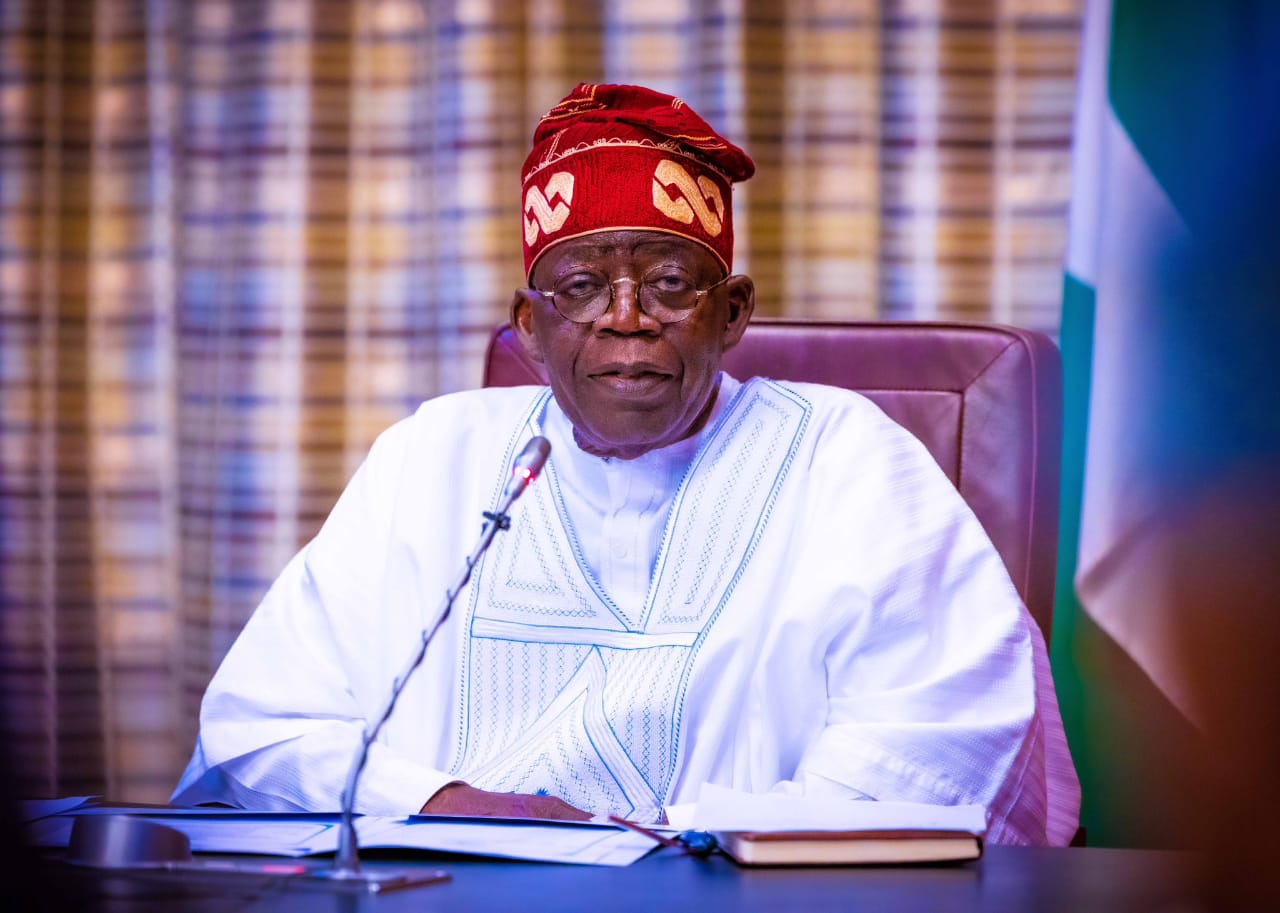
By Andrew Oota , Abuja
President Bola Tinubu has declared that his administration’s economic reforms and policies were working for the progress of Nigeria and the good of all.
The President also stated that his administration would make life better for Nigerians acknowledging the sacrifices made so far, with a conviction that his vision for the country is clear.
Tinubu said this in a statement issued to commemorate the second anniversary of his administration on Thursday, May 29, 2025.
He stated that his administration had stabilised the nation’s economy, noting that “we are now better positioned for growth and prepared to withstand global shocks.
”He pointed out that , “Today, I proudly affirm that our economic reforms are working. We are on course to build a greater, more economically stable nation.
“Under our Renewed Hope Agenda, our administration pledged to tackle economic instability, improve security nationwide, reduce corruption, reform governance, and lift our people out of poverty.
“While implementing the reforms necessary to strengthen our economy and deliver shared prosperity, we have remained honest by acknowledging some of the difficulties experienced by our compatriots and families.
”We do not take your patience for granted. I must restate that the only alternative to the reforms our administration initiated was a fiscal crisis that would have bred runaway inflation, external debt default, crippling fuel shortages, a plunging naira, and an economy in a free-fall.
“Despite the bump in the cost of living, we have made undeniable progress.”
The president further stated that he acknowledged the sacrifices many Nigerians have been making for the development of the country, adding: “Our journey is not over, but our direction is clear. So is our resolve to tackle emerging challenges.
“By the Grace of God, we are confident that the worst is behind us. The real impact of our governance objectives is beginning to take hold.
“The future is bright, and together, we will build a stronger, more inclusive Nigeria that we can all be proud of.” He said.
COVER
Seven Months After, Reps Pass Harmonized Tax Reform Bills

By Eze Okechukwu and Ubong Ukpong,Abuja
House of Representatives on Wednesday passed the tax reform bills transmitted to the National Assembly by President Bola Tinubu in October 2024.The bills were passed at a session presided over by the Deputy Speaker, Benjamin Kalu.
The development followed the adoption of the harmonised versions of the reform bills by both the House and the Senate. At plenary on Wednesday, the House of Representatives considered the report of the conference committee, which harmonised the bills. The Chairman of the House Committee on Finance, Abiodun Faleke (APC, Lagos), who headed the House team to the conference committee, presented the conference report to the House for consideration.According to him, the Conference Committee met and agreed on all areas of difference in the version passed by both chambers of the National Assembly. He stated that there were 45 areas of difference in the Nigeria Tax Administration Bill, 12 areas of difference in the Nigeria Revenue Service Bill, 9 areas of difference in the Joint Revenue Board Bill and 46 areas of difference in the Nigeria Tax Bill, adding that all grey areas were resolved ahead of the passage. While the conference committee agreed to retain the Senate version in some of the clauses, they also retained the House version in some others, making amendments in a few others. The conference committee agreed to the imposition of a 4 per cent development levy on the assessable profit of all companies chargeable to tax under Chapters 2 and 3, except small companies and non-resident companies. They also agreed that the levy shall be collected by the Nigeria Revenue Service and paid into a special account created for the same purpose.In the sharing formula, the committee agreed that 50 per cent of the tax would go to the Tertiary Education Trust Fund, 15 per cent to the Education Loan Fund (up from 3 per cent agreed by the House), and 8 per cent to the Nigeria Information Technology Development Fund.
Similarly, the National Agency for Science and Engineering Infrastructure is to get 8 per cent (down from 10 per cent earlier agreed by both chambers), the National Board for Technology Incubation is to get 4 per cent from the fund, defence and security infrastructure is to get 10 per cent while cyber security fund will get 5 per cent.
Meanwhile, the Social Security Fund, Nigeria Police Trust Fund, and National Sports Development Fund were excluded from the list of beneficiaries passed by the House of Representatives.
The committee also adopted a new clause 158, which imposes a 5 per cent surcharge on chargeable fossil fuel products provided or produced in Nigeria and shall be collected at the time a chargeable transaction occurs.
The controversial Value Added Tax sharing formula was not part of the areas of disagreement between the two legislative chambers.
In his remarks, Kalu said the parliament has played its part in ensuring that the country moves forward, even as he urged the executive arm of government to do its part.
In his contribution, a member of the House representing Gwoza/Damboa/Chibok Federal Constituency, Borno State, Ahmed Jaha warned those who will clean up the bill not to tamper with any of the clauses passed, saying “Where the T is not crossed, don’t cross it, where the I is not dotted, don’t do it. We have the original copies of the bills as passed before and after harmonisation.
“We have had cases in the past where those in charge of cleaning up the bills tamper with it and at the end of the day, the President will withhold assent. That must not happen.”
That said, the All Progressives Congress lawmaker singled out Speaker Tajudeen Abbas and Deputy Speaker, Benjamin Kalu for praise, saying, “I want to thank your leadership for the role you played in making these bills a success. I also want to thank the Chairman of the Committee, Abiodun Faleke. He showed that he is truly a good elder. He provided a lot of training for some of us, and I want to say that this is the way to go.”
In a related development, the Senate has approved the Rivers State 2025 budget for a second reading.
The budget, which totals ₦1,480,662,592,442 trillion, was presented by the Senate Leader, Senator Michael Opeyemi Bamidele, on Wednesday.
Bamidele explained that the Senate had assumed legislative powers over Rivers State following the declaration of a State of Emergency in the state.
Supporting the motion, Senator Solomon Adeola Olamilekan emphasised the urgency of passing the budget to ensure that the people of Rivers State feel the impact of governance.
He said, “Mr. President, I am not exactly sure under what title this document is categorised, but from what I can see, it pertains to a budget under the state of emergency. I hereby support its passage for second reading so that the people of Rivers can feel the presence of government.”
With no opposition to the motion, the Senate President, Godswill Akpabio, conducted a voice vote and referred the budget to the Ad-hoc Committee on Overseeing the Rivers State of Emergency for further legislative action.
Senate announced that the Sole Administrator of Rivers State, Vice Admiral Ibok-Ete Ekwe Ibas, along with other key state officials, would appear before a Joint National Assembly Ad-hoc Committee to defend the state’s 2025 budget. NASS holds commemorate 25 years of democracy, holds joint session,
Also,President of the Senate, Senator Godswill Akpabio, has announced that a joint session of the National Assembly will be held on June 12 to commemorate Democracy Day.
He made the announcement after the upper chamber reconvened for plenary on Wednesday.
Akpabio revealed that the Senate leader, Senator Opeyemi Bamidele, the Senate minority leader, Senator Abba Moro as well as the Chairman senate services, Senator Sunday Karimi will meet with their counterparts in the House of Representatives to finalize the programme of activities and coordinate arrangements for the special session.

